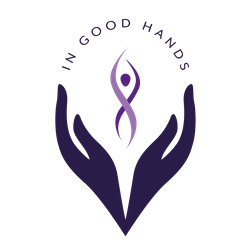
WHAT IS COGNITIVE BEHAVIOURAL THERAPY?
Cognitive Behavioural Therapy (CBT) is a fantastic treatment for well-being and improving mental health. It is a specialised and popular form of psychotherapy and is the ‘go-to’ treatment choice recommended by health practitioners. It has been proven to be very effective with many mental health and medical disorders such as anxiety and depression.
It is considered that CBT is among the ‘fastest’ in terms of results obtained and is delivered as a time-limited intervention (limited number of sessions).
The emphasis is on problem-solving and behavioural change using structured interventions that help deal with problems quickly and efficiently. It is focused on the present, what the person is experiencing – the here and now.
Specific skills are learnt that can be used throughout life. Identifying and altering negative thought patterns, belief systems and behavioural change activated.
Sessions can also include Hypnotherapy or mindfulness techniques and solutions to give an overall more empowering treatment.
How Does Cognitive Behavioural Therapy Work?
This therapy is based on the scientific fact that our thoughts cause our feelings and behaviours, not external things like people, or situations. Change the thought change the feeling and behaviour.
We can change the way we think and feel by replacing negative thoughts with positive thought patterns that help us to think differently. It works from the bases that changing our thought patterns lead to changes in behaviour and mood.
The methods primarily work on challenging a client’s entrenched thought patterns and replacing them with good ones and therefore decreasing behaviours that contribute to emotional distress and anxiety.
It’s not just about positive thinking but actually challenging negative thought patterns and practising new behaviours.
Thought – Emotion – Behaviour
The CBT Triangle
What we think affects how we act and feel and what we feel affects our beliefs and do and what we do affects how we think and feel. This is what we mean by the CBT triangle of how we respond, feel and act on our emotions and thoughts.
This site provides more information on how CBT works and what it is, helping you to understand the therapy better.
How we see the world, influences how we feel emotionally. It is the thought about a situation that affects how we feel and not the actual situation.
Ultimately, clients learning CBT develop skills to prevent mood problems, intrusive thoughts, and problematic behaviours from diminishing their quality of life.
People change when they learn to think differently and the focus is on teaching rational and self-counselling skills.
HOW CBT CAN HELP YOU
Suffering With Anxiety?
These are the main areas CBT can help:
Stress, Anxiety disorders, depression, PTSD
Addictions, Relationship problems
Phobias, Fears, Panic Attacks
Low mood, Negative Thinking, Anger control
Low self-esteem/confidence
Weight issues, Eating Disorders
Quitting Smoking
Insomnia & sleep issues
Pain Management, IBS, Healing
Bereavement, grief, Amnesia, Guilt
Sports Performance and much more

